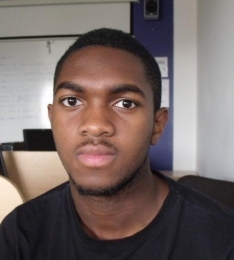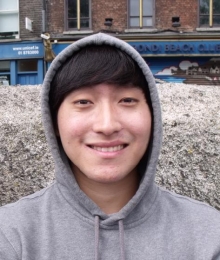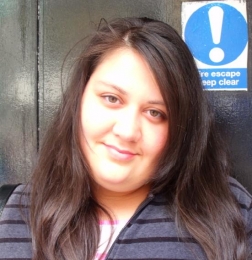During the ‘Celtic Tiger’ boom period, immigrants came to Ireland in much greater numbers than ever before in search of work, better living conditions or to take refuge in the country.
And while the numbers have dwindled since the recession took hold, thousands more continue to come – many in search of refuge.
According to the Central Statistics Office, the growth in the number of non-Irish nationals “has continued since 2006, albeit at a slower pace than earlier years”, noting that the total numbers of immigrants “increased by 124,624 over the five years to April 2011, which represents a rise of 30 per cent.”
Many of these newcomers now consider Ireland as their home, albeit their second home. By being here, they hope that their lives will be better than what they lived in their countries of origin.
One such immigrant is 18-year-old Meg Nuñez, who has been living in Ireland for two years. She came from the Philippines to be reunited with her father and to study.
“I joined my dad here about two years ago and coming to school here I have made great friends,” she says, adding that she has just received her Leaving Cert results and is looking forward to college.
Since coming to Ireland, Nuñez says she has enjoyed travelling around the country. But she’s also faced challenges, such as when her father moved to the United States last year for work.
And like many immigrants, as an adult she’s now subject to registration fees by the Garda National Immigration Bureau (GNIB) that have doubled over the last few years to €300.
Frustration
Nineteen-year-old Sodiq Jim-oh, who has been living in Ireland for the past 11 years, has his own problems.
Though he was born in England, he came to Dublin with his family before he turned four years old and never received a British passport in his name, instead travelling on his Nigerian documents.
Because of this, Jimoh – a marketing student at the Dublin Business School – is considered a non-EEA citizen by the authorities here.
“I am frustrated about the fact that the GNIB fee has been doubled,” he says, “and on top of that I just paid a total amount of €1125 for my Irish citizenship.”
Different challenges are faced by Kez Kim, 23, who has been living in Ireland for just four months now, and has come up against the language barrier as English is not his native tongue.
“It was also challenging for me to get use to the new culture and my new environment,” he says.
Coming to live in a completely different culture and experience, it’s understandable that many immigrants would be afraid of what the locals might think of them, and how they would react.
In the beginning, Nuñez says she thought that Irish people were “racists and snobs” but soon she discovered that they are, by and large, friendly and helpful.
“Because of the many opportunities that it offers especially to immigrants, Ireland is a good place to live” she says, adding that life here is much easier than in other western countries, especially America. “Ireland is pretty laid back.”
Jimoh agrees that Ireland is a quiet place to live in with very nice people, though in terms of the country’s economy, he feels that “you wouldn’t get much opportunities as you would in other countries”.
Not an easy start
Cosmina Iordache is a 19-year-old Romanian who have been living here for the past seven years and now considers Ireland as her “own country”. But it was not an easy start for her. She relates experiences of bullying at school for being an immigrant, but as the years passed this gradually improved.
“Fitting in was one of my worst challenges coming to live here, but since then it has gone easier,” she says.
Iordache and Kim both think that the Irish Government should find a way to offer more help for immigrants, such as providing more jobs and improving public services. Iordache in particular says that people who are more willing to work for low wages are taking away other people’s jobs, while better prospects are harder to come by due to lack of opportunity.
“Most employers nowadays are looking for people who have work experience, and I think the government should do something about that,” she adds, noting that it’s impossible for anyone to gain experience if they can’t get related work in the first place.
Another thing that Kim would like to see is a change in the speed of public service provision because “everything is slow”.
Between them, Nuñez, Kim and Iordache have related many personal changes since they started living here. While the latter two expressed pride in improving their English, the great change in her environment made Nuñez more mature and independent, she explains, and that by living alone she learned to be self-reliant.
“Since I’ve lived here I’ve noticed that I have got more self-esteem, and my friends are a big part of that,” she says.















